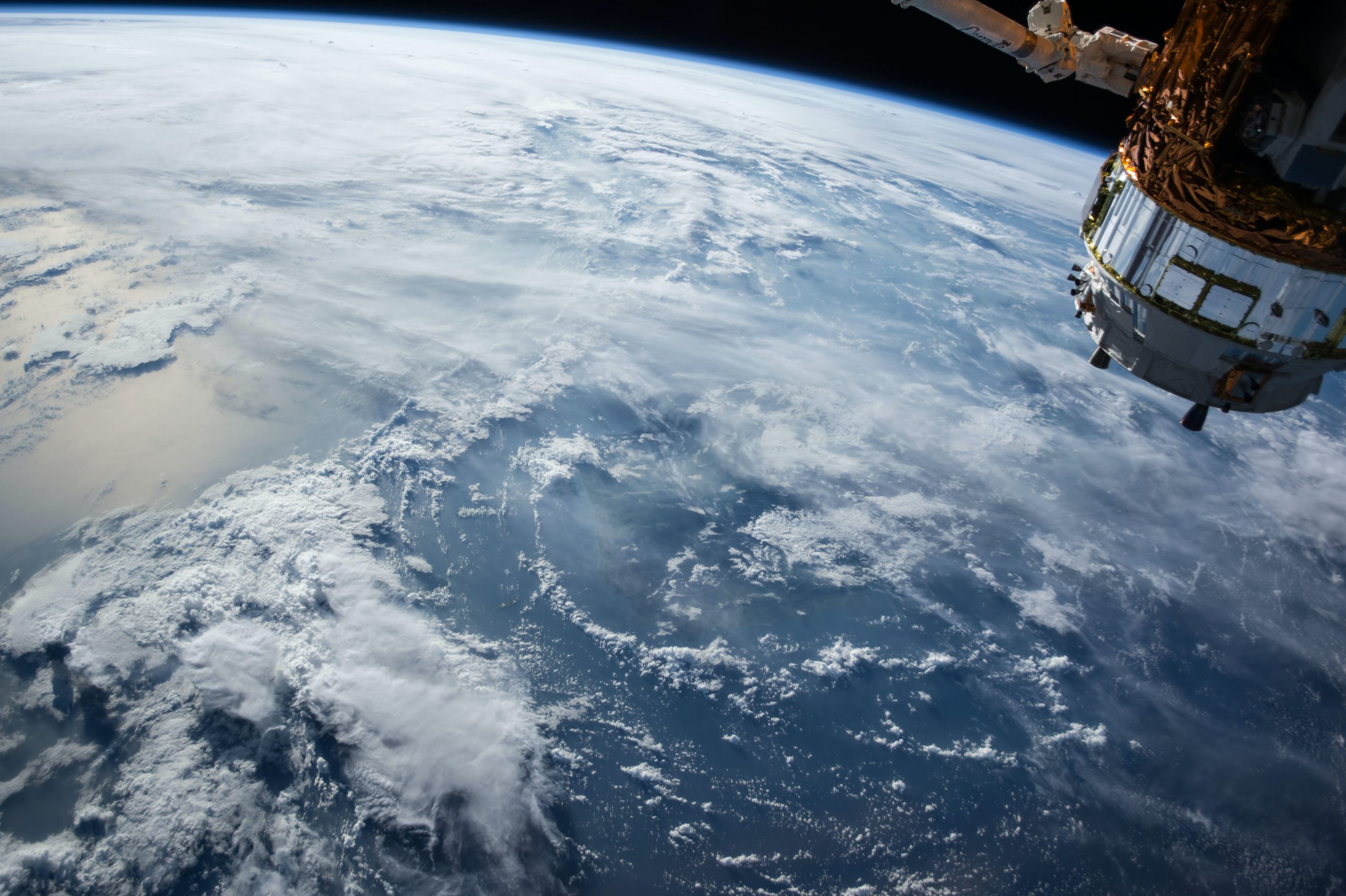The news that billionaire Richard Branson launched into space with the first fully crewed Virgin Galactic flight skyrocketed on every news channel on July 11th. Shortly after, on the 20th of July, the richest person on the planet, Jeff Bezos, embarks on his own mission to space, fulfilling his lifelong dream. Such events mark monumental milestones for the multibillion-dollar space industry, as travelling through outer space is no longer mere science fiction – of course, only for those who can afford it.
Four Minutes of Zero Gravity
“We’ve been to space, everybody!” are the cheering words that Branson shared after completing the ambitious mission of Virgin Galactic’s Unity 22. VSS Unity successfully accomplished a suborbital test flight at 86 kilometres above Earth’s surface, landing the full crew of two pilots and four mission specialists accompanied by Branson smoothly back on land. Even though the British entrepreneur defeated Jeff Bezos in the so-called “space race”, some analysts believe that Blue Origin is a more serious contender in the future of the space economy. The vision of his company goes beyond flights for space tourists and Bezos has already made significant investments in his space project, which would potentially turn it into an economic powerhouse. A few years ago, he stated that “The only way that I can see to deploy this much financial resource is by converting my Amazon winnings into space travel,” as he committed to spending one billion dollars per year to build a space empire.
Opening up the cosmos for travel purposes has been an everlasting goal for space companies and their billionaire investors for years. But reaching “cloud nine” is definitely not for everyone. One exciting excursion with Virgin Galactic’s “shiny six-seated spaceplane”, SpaceShipTwo, adds up to no less than $250,000 per person and, not surprisingly, 600 enthusiasts have already reserved their seats. All things considered, this is one of the affordable options available on the space market. For instance, a ride on Blue Origin’s New Shepard is rumoured to be even more expensive. Although prices have not been divulged yet, those eager to fly can send an email to the company to show their interest. Also, going around the orbit for a couple of days on SpaceX’s Crew Dragon capsule is estimated to cost $55 million, although this has not been publicly confirmed. Even if prices are expected to go down sometime in the future, it looks like it might not be possible for the masses to afford to travel to space anytime soon. So, to keep up the hype of space tourism, billionaires are either hand-picking talented people to join them on space trips or setting up ‘all civilian’ missions to space.
Privatization of Space
In a live interview on Bloomberg TV, Tess Hatch from Bessemer Venture Partners discusses the main types of business opportunities utilising the potential of outer space. The first common one is launching satellite constellations into space with unique sensors used for earth observation. This included communication services such as radio, television, and navigation we use every day. The second one is represented by private companies launching rockets and vehicles into space. In May 2020, Elon Musk’s SpaceX became the first private company that launched two NASA astronauts to the International Space Station. This marked the first shift of space travel from massive government projects to private industries. Following this pivotal moment, SpaceX, which competed with Jeff Bezos’s Blue Origin for the contract, was chosen by NASA’s future Artemis mission to send astronauts to the Moon.
Indeed, the increased activity of private companies in space prepared the ground for ambitious space tourism programs such as Virgin Galactic’s or Blue Origin’s flights and even luxury space hotels. Having a full vacation in a space resort might be possible starting 2027, as Orbital Assembly Corporation is planning to open the world’s first space hotel, which would accommodate 280 guests and 112 crew members.
Nevertheless, the economic opportunities exceed beyond the wishes of the ultra-rich to conquer space. While it might seem as though only the wealthiest people are racing each other at high altitudes, opening up the space economy creates exciting prospects for science and technology. Space tourism might become a way to make intercontinental travel faster, cheaper and more sustainable. But this is only one area of a very robust space economy. A company that aims to “improve life on Earth from space” is Astra – the fastest privately-funded company in history to reach space. It already has over 50 launches under contract and will begin its mission to create a “healthier and more connected planet” in summer 2021. Astra’s first Earth Science mission awarded by NASA, “consists of a constellation of six small satellites that will observe tropical cyclones, aiming to improve the scientific community’s understanding of these dangerous weather events”.
Escaping Earth?
However, many have criticised Branson, Bezos and Musk for spending astronomic amounts on “passion projects” when there are other causes that could make better use of these funds. In a world that is facing the aftermath of a global pandemic on top of the worst climate crisis in centuries, it seems unjust that billionaires are building spaceships to leave Earth for leisure. Consequently, many public figures addressed this topic on social media. Two days before Branson’s launch, former U.S. Labor Secretary Robert Reich tweeted:
“Is anyone else alarmed that billionaires are having their own private space race while record-breaking heatwaves are sparking a ‘fire-breathing dragon of clouds’ and cooking sea creatures to death in their shells?”
In addition, on the day of Virgin Galactic’s flight, Bernie Sanders posted on his Twitter account stating:
“Here on Earth, in the richest country on the planet, half our people live paycheck to paycheck, people are struggling to feed themselves, struggling to see a doctor — but hey, the richest guys in the world are off in outer space! Yes. It’s time to tax the billionaires.”
Speaking of “taxing the billionaires”, an Oregon congressman proposed a space tourism tax on all space tourists for “their privilege”, on the same day that Bezos and his crew had their rocket trip in outer space.
As for now, it is clear that space travel is a luxury that only the “top 1%” can afford. Although many endorse the thought that humans should become a “multi-planet species”, the reality we are living in seems very distant from such an achievement. In the meantime, what most of us can do is tune in for the next rocket launch and watch the spectacle from the comfort of our homes. Only time will tell if we would also be fortunate enough to float in zero gravity above Earth one day.






0 Comments